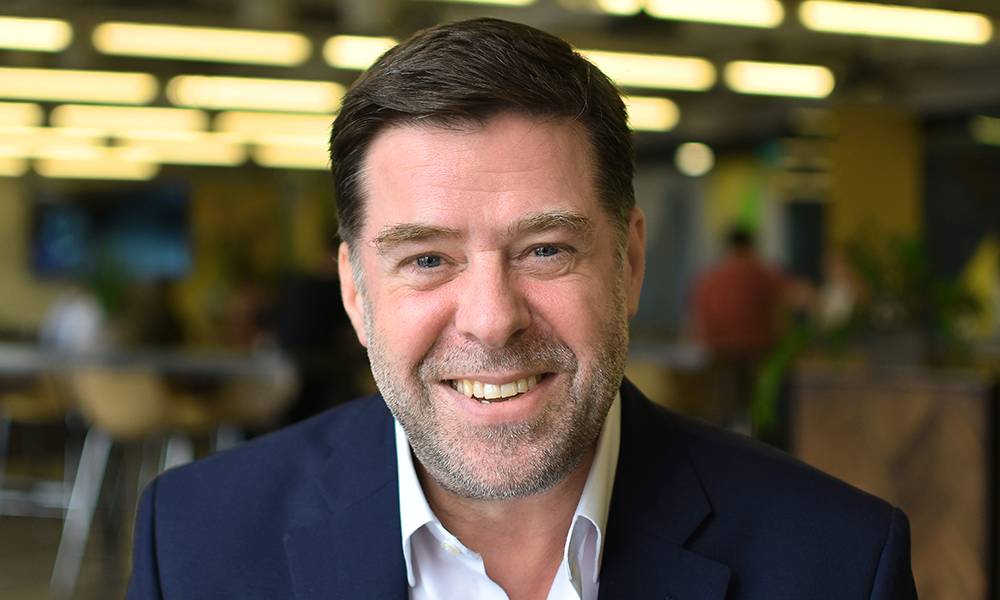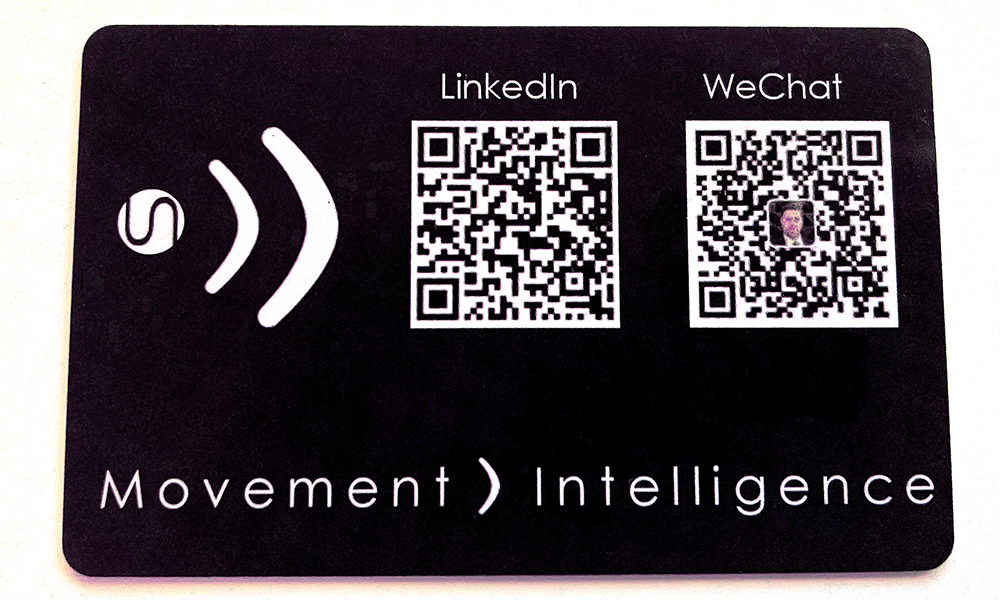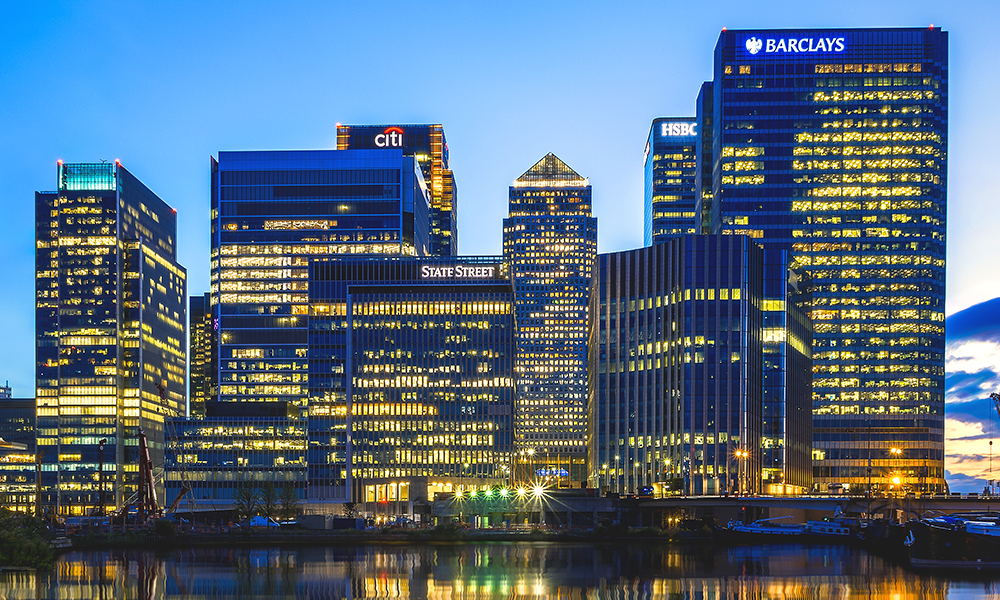Level39-based company’s real-time occupancy data designed to help reduce energy wastage

Subscribe to Wharf Life’s weekly newsletter here
“You cannot manage what you can’t measure,” said Paul Sheedy, the CEO and founder of Unifi.id.
“The one thing we focus on is giving clients the right measurement tools so that they can manage their buildings better.”
In the mouth of a lesser individual, technology designed to track building occupancy in real time and adjust systems such as lighting, heating and air conditioning accordingly might seem a little dry.
But Paul positively vibrates with passion when it comes to his specialist subject.
On the one hand there’s the engaging Irish lilt of a Dubliner and a glint in the eye.
On the other there’s a burning frustration and exasperation that more isn’t being done to tackle climate change and humanity’s continued overuse of resources.
He’s disarming, funny and deadly serious.
“We talk a lot about smart buildings,” he said, waving a hand to indicate the London skyline stretching out to the City and beyond as we gaze out of the 39th floor of One Canada Square in Canary Wharf.
“But 96% of buildings around the world are not smart.
“What we’re trying to do is deliver the things companies need to actually make them smarter.
“In most buildings, energy wastage is about 30% – just think of that in the wider context of cutting emissions and gas and electricity prices rising so quickly.
“My focus is all about using less energy and so lowering organisations’ carbon footprint very, very rapidly.”

Based at Canary Wharf’s tech community Level39, Unifi.id has developed technology embedded in entry and exit swipe cards that allow its detectors to log employees as they pass key points in a building.
Paul is quick to stress this isn’t about tracking the exact movements of individuals as they go about their day, but rather knowing who is in what general area at any given time and then using that data in a number of different ways.
“The lingering effect of the lockdowns is a good example,” he said. “Almost all buildings are being run as they were pre-Covid.
“Companies have all their cleaning staff, their restaurant staff and security staff in as though the occupancy was the same.
“But some buildings still have only around 2% of staff in on a Friday.
“That those buildings are being run in the same way is ridiculous.
“Before Covid, the way buildings were occupied was consistent, but now there’s not a single one that we run that has any consistency.
“Occupancy is so sporadic and it can be extreme on Mondays and Fridays.
“It’s criminal that all the lights are on, the air conditioning is cooling every floor, with only a fraction of the staff in.
“That’s why our technology can have an impact – the more we monitor, the better our predictive analysis gets. For example, we can see the effect of external factors.
“We see that about 7%-12% fewer people come to the office on a Thursday if it’s raining.
“In contrast, rain on a Tuesday hardly affects anything and we think there’s a psychological reason for that because if you’ve been working from home on Friday and Monday, by Tuesday you’ll be feeling a need to return to the office despite the weather.
“On a Thursday, you might just think it doesn’t matter so much, especially if you’re working at home or off on the Friday.
“Then you have other factors such as train strikes, which can affect occupancy over an entire week.
“Occupancy detection also allows building owners working with us to tell the buildings in advance so they can adapt – keeping floors closed and turning down the air con, for example.
“What we’re really trying to say to organisations is that they can adapt to this new way of working, but there will be consequences, so they may need to use hot-desking because certain areas won’t be open.”
The key for Unifi.id is giving organisations this ability to track change so they can adapt what their buildings are doing in real time, rather than simply guessing what’s happening.

“We think there will be a change,” said Paul.
“People working from home, paying for all the lighting and heating, will recognise that it would be cheaper for them to go to work, so it will get busier later in the year.
“In many sectors where there is flexibility, we already know what’s happening.
“Staff are seeing that it’s the right time to go back to work, socialise and interact with other people again.”
Greater numbers back in buildings makes Unifi.id’s technology even more relevant, given its obvious safety benefits.
Should a building catch fire, for example, knowing exactly how many people are in it and where they are is potentially life-saving information for the emergency services.
“This is something I’m particularly passionate about, because back in Dublin when I was a child, we had 48 of our neighbours die in a dance hall fire – they couldn’t get out of the building,” said Paul.
“What we want to do for the London Fire Brigade and for the tenants of buildings is to bring in a new policy where, in real time, if something does go wrong, the emergency services and building managers know the occupancy of the building.
“That means they can monitor the evacuation of the building and could save firefighters’ lives if they then don’t need to go in.
“Also we look at how many people in a building have mobility issues and where they are, so efforts can focus on getting them out safely.
“People don’t always do sensible things when it comes to an evacuation.
“We have mechanisms in place where, if we can see people heading the wrong way, a completely automated communication is sent to their mobile to tell them where to go and what to do to get to the ground floor, even if that’s to avoid a certain evacuation route.”
Paul created Unifi.id following the success of Symphony Retail AI, a company he co-founded that analyses loyalty card transaction data to better understand the behaviour of shoppers.
Originally conceived to create beacon technology – the idea of sending messages from companies to people’s phones based on their location and profile – his firm switched its focus to property when it eventually became clear in the advertising world that this was a non-starter.
“I hate to admit failure, but I will,” said Paul, who has been based at Level39 since it launched as a tech accelerator hub in 2013.
“The world was convinced that beacon technology was going to be the next big thing in advertising, but it never happened.
“No retailer anywhere in the world ever made it work to detect the right customer at the right time to send them the right offer.
“In reality it didn’t work because it didn’t think about the individual and what they would have to do.
“So now we focus on making technology that isn’t dependent on people doing certain things to make it work – the more you do that, the better your product is going to be.
“It’s more difficult for the company, but hey, I wouldn’t get out of bed if I didn’t know it was going to be a challenging day ahead of me.
“I enjoy squeezing the grey matter and the brains of brilliant people I work with to find what piece of physics we can break, bend or enhance.
“So we transformed into a proptech company, delivering simple essential data to those managing buildings so they can make them more efficient and better for the environment.
“Over the past two years, it’s not been a great time to be working in occupancy technology, so a lot of what we did in 2020 was to go back to our clients and say: ‘This will end, tell us what we could do to be even better after Covid’.
“With their responses, my tech team sat down and we just worked relentlessly on building new solutions, working out what the next steps would be.
“We saw that the market was moving from card-based access control to apps.
“But we know this doesn’t make sense because people don’t tap in and out so much using an app, whereas the RFID technology in our cards means we automatically detect people walking into or out of a building or past our detection points.
“We realised that the way to get around this was to develop a facial recognition system.
“We only hold the vectors of a face in the camera, and only when an employee of the company walks in or out of the building – this would be detected and put in the database of who is in the building.
“Then we’d mesh that with 3D counting cameras – with these, we don’t know who you are, but we do know how many people pass them, so in reality we have absolute accuracy on the usage of each floor of a building.
“This means that if we do have an evacuation, for example, we know the numbers of people on each floor and we can detect them as they enter each stairway, so we can see the flow and quickly identify where there might be blockages or problems and allow the fire brigade to get to them.
“We really believe that this will become a global system, which will go into major cities around the world, like Dubai and New York.
Paul is clear that Unifi.id’s technology cannot be used to monitor the exact position of employees – this isn’t about tracking who’s at which desk and how many trips they take to the toilet in a day.
He said this would not only be an invasion of privacy on an ethical level, but also that such data would not be very useful.
“We have been careful with every client that we will never be a Big Brother solution – we’re only detecting people as employees or visitors who are allowed access to a particular floor of a building,” he said.
“Secondly, we will never put our technology into places like toilets or cigarette-smoking areas. If an employer wants to do that, they will be doing it without our technology. That’s not what this is about.
“One of my key points is that it should be actionable data, which would deliver the best solution, not just collecting data for the sake of it.
“The world isn’t taking climate change seriously enough.
“We’re failing on every single metric and we have to realise this isn’t about governments – its about organisations and individuals making the right choices on every single thing they do. We have to contain energy with every single device we use.
“What the UK does have is an amazing ecosystem of accelerators for technology companies and a lot of them are now focused on proptech.
“We’re now working in collaboration with a lot of those companies and, because we’re working with them, this country is now at the forefront of this sector going forward.
“We work with people on LED lighting and automated building management systems and by using our data, businesses can rapidly cut energy wastage now.”
Read more: How Ultimate Performance helps its clients achieve their goals
Read Wharf Life’s e-edition here
Subscribe to Wharf Life’s weekly newsletter here
- Jon Massey is co-founder and editorial director of Wharf Life and writes about a wide range of subjects in Canary Wharf, Docklands and east London - contact via jon.massey@wharf-life.com




One Reply to “Canary Wharf: How Unifi.id delivers tech that helps firms cut carbon in their buildings”
Comments are closed.